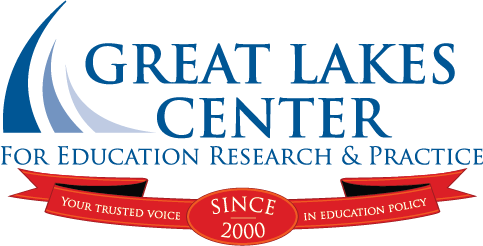November 15, 2023
Two Reports Explore the Inequities Inherent in the Coupling of Housing and Schooling
A “Think Twice” review of a think tank report from the folks at the National Education Policy Center.

NOVEMBER 14, 2023
Two Reports Explore the Inequities Inherent in the Coupling of Housing and Schooling
An NEPC Review funded by the Great Lakes Center
Key Takeaway: Education inequities are not solely a function of education policy and school leadership; instead, they are affected by other social and economic policies and realities, including those related to housing.
GRAND RAPIDS, MI (November 14, 2023) – School attendance boundaries, like the district boundaries that encompass them, are politically and socially constructed, largely determined by state boards of education or local school boards. Two recent reports address issues associated with the inequities that result from the coupling of housing and schooling. A review finds one of these reports to be substantially more helpful than the other, although both have helpful as well as unsupported elements.
Andrene J. Castro of Virginia Commonwealth University reviewed Integrating Housing and Education Solutions to Reduce Segregation and Drive School Equity from the Urban Institute, as well as When Good Parents Go to Jail: The Criminalization of Address Sharing in Public Education, from a new organization called Available to All.
The first report, Integrating Housing and Education Solutions to Reduce Segregation and Drive School Equity, specifically focuses on inequitable school resources and educational outcomes tied to residential and school segregation. Citing relevant research and arguing that education policies alone cannot remedy school segregation, the report outlines a multipronged approach for municipalities and school districts. Though the report has some weaknesses, the arguments are well-supported and the recommendations provide useful insights to inform policy and practice. Decision makers should, however, remain aware of potential contextual complications given insufficient attention.
The second report, When Good Parents Go to Jail: The Criminalization of Address Sharing in Public Education, similarly locates school and residential boundaries as drivers of educational inequities. Specifically, it explores families’ use of an address other than their own to enroll a child in a more desirable school-a practice known as address sharing, punishable by law in many locales. Highlighting high-profile cases of prosecutions across the U.S., the report offers a descriptive analysis of widespread and highly variable state statutes or laws that criminalize address sharing, with punishments ranging from fines to incarceration. The report clearly signals a need for further research as well as for policymakers to consider decriminalization.
Among the recommendations of both reports are calls for increased use of one or more types of school choice-but superficially makes sense given that these policies de-link residence and school assignment. The Urban Institute report focuses on magnet schools and charter schools, with protections in place to overcome transportation and admissions obstacles. The Available to All report simply recommends expanding open enrollment.
Professor Castro warns readers that both reports fail in this regard to meaningfully wrestle with the research base that finds most forms of school choice adding to-rather than alleviating-segregation. She points to forms of controlled choice as deserving consideration.
In light of these findings, and because decisions are complex and local conditions vary widely, Professor Castro concludes that neither report is sufficiently nuanced to directly shape policy, although both can do much to inform it.
Find the review, by Andrene J. Castro, at:
https://www.greatlakescenter.orgFind Integrating Housing and Education Solutions to Reduce Segregation and Drive School Equity, written by Megan Gallagher, Rachel Lamb, Alexa Kort, and James Carter, and published by the Urban Institute, at:
https://www.urban.org/research/publication/integrating-housing-and-education-solutions-reduce-segregation-drive-school-equityFind When Good Parents Go to Jail: The Criminalization of Address Sharing in Public Education, written by Tim DeRoche, Hailly T.N. Korman, and Harold Hinds, and published by Available to All, at:
https://availabletoall.org/wp-content/uploads/2023/07/WHEN-GOOD-PARENTS-GO-TO-JAIL-Available-to-All-001.pdfNEPC Reviews (https://nepc.colorado.edu/reviews) provide the public, policymakers, and the press with timely, academically sound reviews of selected publications. NEPC Reviews are made possible in part by support provided by the Great Lakes Center for Education Research and Practice: https://www.greatlakescenter.org
The mission of the Great Lakes Center for Education Research & Practice is to support and disseminate high-quality research and reviews of research for the purpose of informing education policy and to develop research-based resources for use by those who advocate for education reform.
Visit the Great Lakes Center website at GreatLakesCenter.org
CONTACTS
Michelle Renée Valladares
(720) 505-1958
michelle.valladares@colorado.eduAndrene J. Castro
castroa2@vcu.edu
No comments yet.
RSS feed for comments on this post. TrackBack URI
- SEO Powered Content & PR Distribution. Get Amplified Today.
- PlatoData.Network Vertical Generative Ai. Empower Yourself. Access Here.
- PlatoAiStream. Web3 Intelligence. Knowledge Amplified. Access Here.
- PlatoESG. Carbon, CleanTech, Energy, Environment, Solar, Waste Management. Access Here.
- PlatoHealth. Biotech and Clinical Trials Intelligence. Access Here.
- Source: https://virtualschooling.wordpress.com/2023/11/15/two-reports-explore-the-inequities-inherent-in-the-coupling-of-housing-and-schooling/







